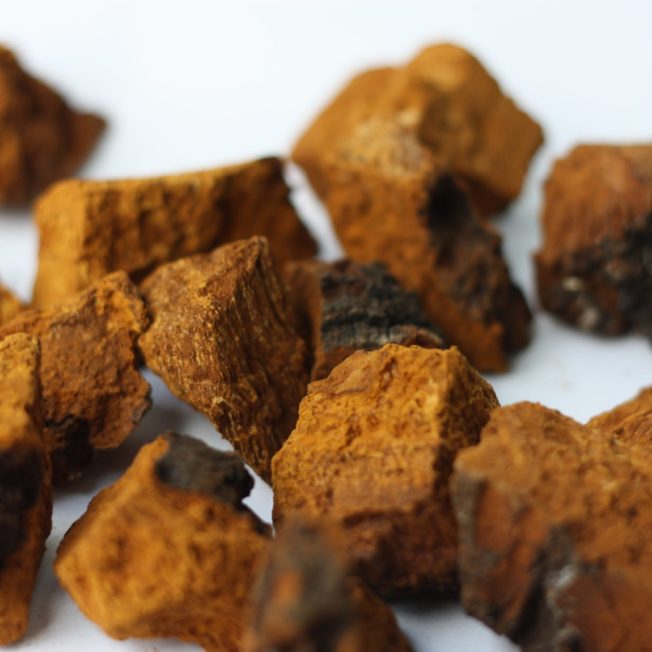It’s more than likely that you’ve become familiar with adaptogens while strolling through the aisles at your local grocery store or while scrolling online for some new additions to your wellness routine.
Adaptogens are often used in herbal medicine to help promote homeostasis and reduce stress. However, over the years, the true definition of adaptogens has become misconstrued.
While all adaptogens are herbs, not all herbs are considered adaptogens.
What are adaptogens?
Adaptogens, quite simply, are a category of herbs. The overall catalog of medicinal plants–including things like herbs, poisons, spices, and items for medicine–all fall under the general herbs umbrella. From there, we can further categorize these herbs into separate categories based on their herbal actions.This would include aromatics, anti-inflammatories, stimulants, hypnotics, and the list goes on and on. There is a chance that some herbs may fall into multiple buckets. Each has their own primary category, but can fit into multiple categories depending on the herb and its multi-level benefits. Much like, for example, stimulants or sedatives, adaptogens are a specific category of herbs.
Adaptogens are based in Eastern medicine often considered as a type of tonic herb that can help promote our overall general health and well-being. They’re not ancient, like other herbal medicines may be. In fact, the term was coined in the 1960s in Russia. At the time, they were researching “adaptogens,” which were a species of plant that could help the bodies of astronauts, soldiers, and Olympians to adapt to both mental and physical stress, side effect free.
One way to look at adaptogens is that they are nonspecific (compared to, say, painkillers that specifically target, well, pain), non-toxic, and normalizing. In fact, their main function is to normalize our bodily functions. They can help us recover from stress (though getting to the root of the issue is always the best route). Adaptogens will help strengthen how we respond to stress in our lives. They work on a higher level to help regulate our system and balance out the body to reach a level of stability on a holistic level.
What are the actual adaptogens?
Today, there are various herbs that have been labeled as “probable adaptogens” as well as “possible adaptogens,” but there are only nine well-researched herbs that can be confidently labeled as adaptogens — and many you likely haven’t seen in your average grocery aisle.
- Asian Ginseng, which serves as a general tonic for well-being in addition to increasing resistance to environmental stress.
- American Ginseng is thought to help to boost our immune system as well as improve our well-being and mental performance.
- Ashwagandha is often used in the Ayurvedic system of medicine due to its anti-inflammatory and anti-stress properties.
- Eleuthero, also known as Siberian ginseng (though it is unrelated to traditional ginseng) is used to increase endurance and improve our memory.
- Schisandra’s purported benefits are mainly centered around energy, helping to increase both strength and stamina.
- Rhodiola has a slew of potential benefits, from the promotion of increased energy, stamina, and strength to fighting off effects of stress, and plenty more.
- Shilajit aims to help restore our energetic balance.
- Rhaponticum is another adaptogen with effects centered around supporting a healthy response to stress while promoting normal energy levels.
- Cordyceps help our body create, and maintain, balance while we are faced with stress.
How do I know which adaptogen to take?
The one thing all adaptogens have in common is that they help normalize our stress response on a more holistic level, as that is the core responsibility and benefit of adaptogens. Beyond that common link, they all perform quite differently when ingested.
Ginseng has a more energizing effect on our bodies. Eleuthro can help with stress in the younger generations, while American ginseng targets middle aged people, and Asian ginseng is best for when we start to grow old. Adaptogens like rhodiola can help support our mood and help with our recovery time after physical activity. Ashwagandha is well known for helping cortisol levels and its calming effects on the body.
When deciding which adaptogens to take, well, that will all depend on what type of benefits that you’re looking for. It’s important to ensure that you’re taking the right herbs–in this case, adaptogens–to have a greater outcome.
“Adaptogens work best when used with in-depth knowledge of their effects, energetics and the appropriate companion herbs,” David Winston, founder Herbalist & Alchemist, told NutraIngredients.com. “We want people to educate themselves, so they can use the right herbs to maximize their benefits and the person’s health. When we take the wrong herb, an inadequate dose or a poorly designed formula, and they are ineffective people’s take away is that herbs don’t work.”
How are adaptogens and herbs different?
Adaptogens at its core is a term for a select group of herbs that help our bodies adapt to stress (hence the name). Over the years, the term has been stretched to herbs that aren’t necessarily classified as adaptogens and is used in a buzzy, branding friendly manner that is commonly used to market products. However, many times, it may be misused in a product context by labeling one of the thousands of other herbs on this planet as an adaptogen when it’s not one of the nine researched adaptogens.
Herbs and adaptogens are not interchangeable terms — herbs refer to the full catalog of medicinal plants, while adaptogens (not probable, not possible) refer to nine specific plants.
At the end of the day, if you’re looking for an herb that has a nonspecific action that instead focuses on a high level normalization, adaptogens are your goal! Just be sure to do some research to find one that will suit your needs.

















